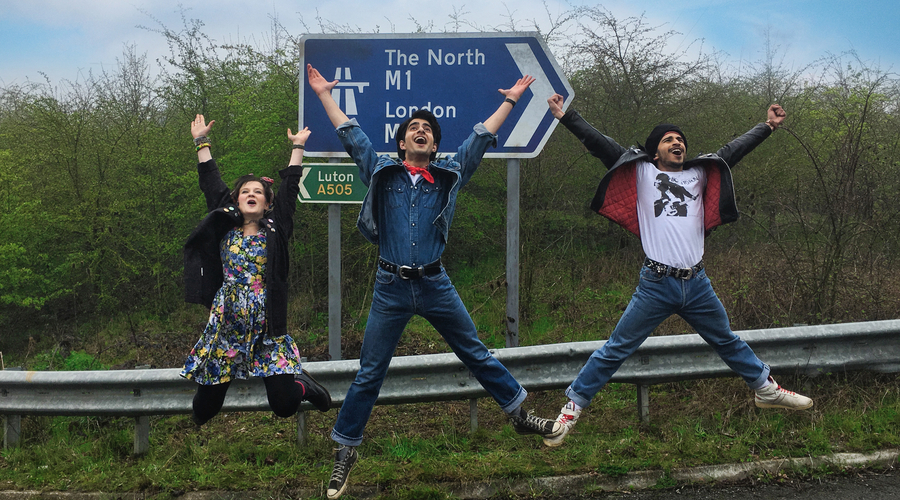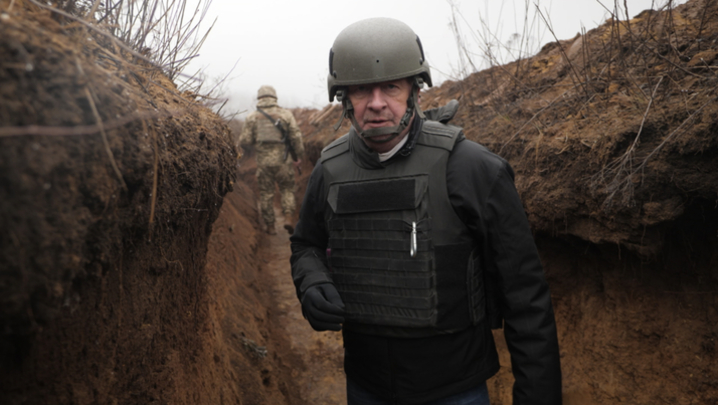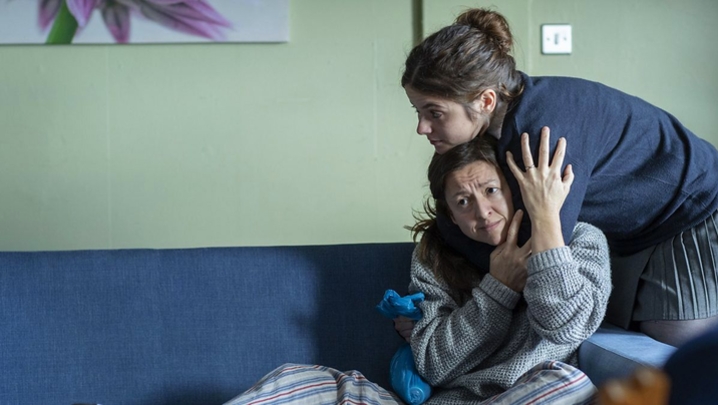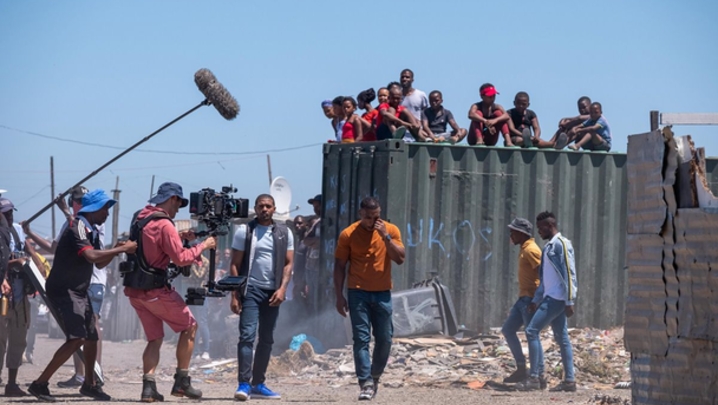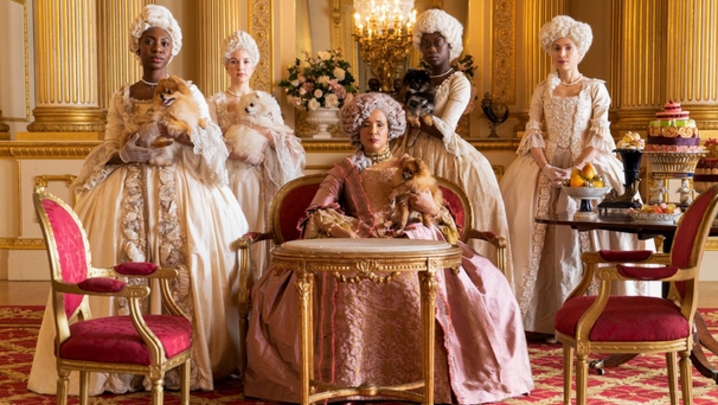Sandra Shuttleworth of Vertigo Films scored an early success with the much-loved British film Bend It Like Beckham. Currently, when she’s not working on swords and sorcery drama Britannia, the head of production can be found reliving the music of her youth on upcoming Sky drama A Town Called Malice.
What does the job involve?
Ultimately, my job is to plan ahead, working closely with the producers, key stakeholders at Vertigo and the broadcaster, from programme development to delivery, making sure the financials, compliance and the right creatives are in place to bring the creative vision to fruition.
A key part of the job is attaching series producers, line producers, casting directors and international service producers who are never afraid to push boundaries and strive to elevate the creative vision (needless to say, safely on budget and on schedule).
What was your route into production management?
I came at it from a different angle, starting as a runner at Rushes motion control studio and training as a camera assistant and clapper loader back in the 1990s. I was one of only five female camera assistants in the country, and this stood me in good stead for a career in production – not being intimidated by technical equipment and getting a rounded understanding of all the different crew and their roles on the floor.
I was really lucky to meet a production manager who worked in feature films and gave me an opportunity as a production secretary on a movie. I worked my way up through production management, mainly on films, to become a head of production.
What was the first film you worked on?
A British drama, Elephant Juice. Several films later, I was production manager on Bend It Like Beckham – we had an amazing, diverse crew and cast, and it was so much fun to work on. Sixteen years later, I worked with Gurinder Chadha again, as head of production on ITV period drama Beecham House and her latest film, Blinded by the Light.
What makes a good head of production?
Being calm under pressure, good communication, working collaboratively, being able to multitask and prioritise efficiently, and keeping abreast of industry standards and regulations. And a good sense of humour.
What are the biggest challenges of the job?
Marrying editorial ambition and budget is the standard challenge across all productions. A more recent challenge is crewing productions. The UK film and TV industry is booming, with a huge amount of content being commissioned and produced here. However, there is a real shortage of experienced crew. Added to that, there are restrictions to training new crew caused by Covid-19 protocols.
Which people do you work with closely on a production?
Vertigo Films’ executive producers James Richardson, Allan Niblo and Jane Moore, who are not afraid to take business risks and do things differently. I also work very closely with the series producer, line producer, financial controller and production lawyer. I’m also the conduit between the production and the broadcaster, keeping them updated on the schedule, cost reports and raising any production red flags.
So, you are under pressure from all directions?
It’s part and parcel of the job – you do get pushed from pillar to post at times. But we are all working for a common goal – to create the most ambitious show that we can all be proud of.
What do you bring to work with you?
A sense of humour and a spreadsheet. I liken a production to pulling together a circus or multiple circuses simultaneously, but on a global level. I have the privilege of working with so many incredibly skilled individuals from across the planet to bring the creative ambition to fruition, but this does require military-level planning, communication and organisation.
What does a typical working day look like?
I have a slate of projects, all at different stages, usually one in development or early pre-production, one filming and one in post-production.
Those in early pre-production require planning, budgeting, scheduling and feasibility studies, before we start sourcing the key production talent, deciding where we film the project and looking for tax rebates.
For those shows in production and in post, I regularly liaise with my teams and am available to deal with problems as and when they arise.
Is the job different outside the UK?
At Raw TV, I worked all over the world – the US, Canada, Africa, Europe and the Far East. The skills are transferable but there are differences: one of the most important in the US is having to work with unions such as the IATSE, the Writers Guild of America and Screen Actors Guild. The film and TV industry in India is also unionised – there are at least three times the crew per production in India as in the UK.
What are the best and worst parts of the job?
The best is the day you lock the budget and finance is closed, preferably before you start filming. The next is the day the series producer and the line producer start. Recently, the worst has been dealing with schedule changes due to Covid-related incidents.
What show are you most proud of working on?
Miracle Landing on the Hudson because of the logistics involved. We got a decommissioned 737, which had been stripped of its parts, and built the biggest tank and green screen in Europe just for this shoot. We ended up craning the plane into the tank and then sunk it with 150 people inside in a safe, controlled environment.
Are there any tricks of the trade you can share with us?
Joined-up conversations, staying close to the creatives, knowing what’s going on and sharing information. It’s all about teamwork.
How has the job changed since you started?
The TV industry is far busier now – there is such an appetite for content. There is also an industry drive to look after your crew; everyone works long hours and under pressure, which has been exacerbated by Covid.
At Vertigo, we strive to look after our crews’ wellbeing: we have an HR consultant attached to our shows and we employ a wellbeing company that is available to all cast and crew.
What advice would you give to someone wanting to break into production management?
It’s an exciting time to work in our growing industry. It does require a lot of hard work, commitment and passion, but you can certainly move up through the ranks faster than before.
ScreenSkills offers fantastic opportunities and training to learn about production; working as a runner gives you a real sense of how the industry works. If you’ve got organisational skills from another sector, they are transferable to TV and film.
What TV series would you love to work on?
Vertigo is currently filming a crime thriller set in the 1980s, A Town Called Malice, created and written by Nick Love for Sky. It’s an explosive gangster family drama set on the Costa del Sol, strongly driven by a banging 1980s soundtrack and with an unexpected kick-arse twist. I grew up in the 1980s and loved everything about the era apart from shoulder pads.
Sandra Shuttleworth was interviewed by Matthew Bell.

